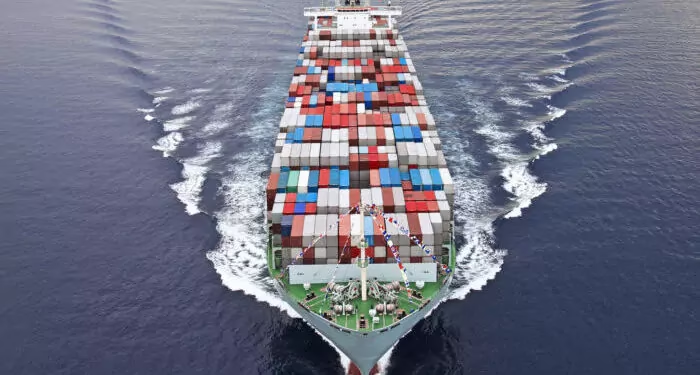Shipping Smarter in 2025: USIShip Helps You Adapt to the Global Tariff Changes
In April 2025, the U.S. administration introduced significant tariff adjustments, imposing a universal 10% tariff on all imports, with higher rates for specific countries—20% on European Union goods, 34% on Chinese imports, and 24% on Japanese products . These changes have disrupted international trade, leading to increased costs and complexities for businesses engaged in global commerce. Shipping Smarter in 2025
What Challenges Do E-commerce Platforms Face Amidst These Tariff Adjustments?
E-commerce platforms are grappling with increased operational costs due to higher import duties, which can erode profit margins and necessitate price adjustments. Maintaining customer satisfaction becomes challenging as delivery times may be affected by customs delays and the need for compliance with new regulations.
How Can E-commerce Businesses Achieve Success in This New Tariff Environment?
Success in this evolving landscape requires a strategic approach:
- Diversifying Supplier Base: Reducing reliance on suppliers from countries with higher tariffs can help mitigate costs.
- Transparent Communication: Keeping customers informed about potential delays or price changes fosters trust and loyalty.
- Leveraging Technology: Utilizing advanced analytics to predict demand and manage inventory effectively can prevent overstocking and understocking issues.

What Role Do Shipping and Delivery Services Play in Mitigating Tariff Impacts?
Efficient shipping and delivery services are crucial in minimizing the negative effects of tariffs. Shipping Smarter in 2025 Optimizing delivery routes and consolidating shipments can reduce costs and improve delivery times. Collaborating with reliable logistics partners ensures compliance with international trade regulations, preventing costly penalties and delays.
New TERIFF ar as Follows:
| Country | Previous Tariff | New April 2025 Tariff |
| Algeria | 5% | 30% |
| Argentina | 7% | 10% |
| Australia | 5% | 10% |
| Bahamas | 6% | 10% |
| Bahrain | 5% | 10% |
| Bangladesh | 15% | 37% |
| Bolivia | 8% | 10% |
| Bosnia and Herzegovina | 10% | 35% |
| Botswana | 12% | 37% |
| Brazil | 8% | 10% |
| Brunei | 10% | 24% |
| Cambodia | 15% | 49% |
| Ghana | 8% | 10% |
| Chile | 6% | 10% |
| China | 25% | 34% |
| Colombia | 7% | 10% |
| Costa Rica | 5% | 10% |
| Côte d’Ivoire | 10% | 21% |
| Dominican Republic | 8% | 10% |
| Ecuador | 7% | 10% |
| Egypt | 9% | 10% |
| El Salvador | 6% | 10% |
| Ethiopia | 10% | 10% |
| European Union | 12% | 20% |
| Fiji | 15% | 32% |
| Guatemala | 6% | 10% |
| Guyana | 12% | 38% |
| Haiti | 5% | 10% |
| Honduras | 7% | 10% |
| Iceland | 5% | 10% |
| India | 15% | 26% |
| Indonesia | 10% | 32% |
| Israel | 8% | 17% |
| Japan | 10% | 24% |
| Jordan | 9% | 20% |
| Kazakhstan | 12% | 27% |
| Kenya | 7% | 10% |
| Laos | 15% | 48% |
| Lesotho | 20% | 50% |
| Liechtenstein | 15% | 37% |
| Madagascar | 18% | 47% |
| Malaysia | 10% | 44% |
| Mauritius | 12% | 40% |
| Morocco | 8% | 10% |
| Myanmar | 20% | 44% |
| Namibia | 10% | 21% |
| New Zealand | 5% | 10% |
| Nicaragua | 8% | 18% |
| Nigeria | 7% | 14% |
| North Macedonia | 12% | 33% |
| Norway | 6% | 15% |
| Oman | 5% | 10% |
| Pakistan | 12% | 29% |
| Panama | 12% | 29% |
| Peru | 6% | 10% |
| Philippines | 8% | 17% |
| Qatar | 5% | 10% |
| Saudi Arabia | 5% | 10% |
| Serbia | 15% | 37% |
| Singapore | 5% | 10% |
| South Africa | 12% | 30% |
| South Korea | 10% | 25% |
| Sri Lanka | 18% | 44% |
| Switzerland | 14% | 31% |
| Taiwan | 10% | 32% |
| Thailand | 12% | 36% |
| Trinidad and Tobago | 8% | 10% |
| Tunisia | 10% | 28% |
| Turkey | 7% | 10% |
| Ukraine | 5% | 10% |
| United Arab Emirates | 5% | 10% |
| United Kingdom | 5% | 10% |
| Uruguay | 6% | 10% |
| Venezuela | 8% | 15% |
| Vietnam | 10% | 46% |
How Can 3PL Services Assist Businesses in Navigating These Changes?
Third-Party Logistics (3PL) providers offer expertise and infrastructure to manage complex supply chains. By outsourcing logistics to 3PL services, businesses can focus on core operations while benefiting from cost-effective and efficient shipping solutions. Shipping Smarter in 2025 3PL providers can also offer insights into alternative shipping methods and routes to circumvent high-tariff regions.
Why Is Shipping and Fulfillment More Critical Than Ever?
In the current tariff climate, streamlined shipping and fulfillment processes are vital to maintain competitiveness. Efficient fulfillment ensures that products reach customers promptly, reducing the risk of order cancellations and enhancing customer satisfaction. Shipping Smarter in 2025 implementing automated systems can further improve accuracy and speed in order processing.
What E-commerce Platforms and Solutions Are Best Suited for This Environment?
Platforms that offer flexibility, scalability, and robust integration capabilities are ideal. Solutions that provide real-time tracking, inventory management, and seamless integration with various shipping carriers enable businesses to adapt quickly to changing tariff scenarios.
How Do Logistics and Warehousing Adapt to the New Tariff Structures?
Logistics and warehousing strategies must evolve to accommodate increased costs and regulatory requirements. Implementing warehouse management systems can optimize storage and retrieval processes, reducing overhead costs. Shipping Smarter in 2025 strategically locating warehouses in tariff-friendly regions can also minimize expenses.
How Can Businesses Leverage Amazon Promotions and Sales in This Context?
Participating in Amazon promotions can increase product visibility and sales volume, potentially offsetting higher costs due to tariffs. However, it’s essential to calculate the impact of reduced margins from promotions in conjunction with increased import duties to ensure profitability.
What Are Effective E-commerce Fulfillment Services in Light of Tariff Changes?
Services that offer end-to-end solutions, including customs brokerage, duty drawback services, and compliance consulting, are highly effective. Shipping Smarter in 2025 these services help navigate the complexities of international shipping under new tariff regulations, ensuring smooth operations.
What Shipping Options and Methods Can Reduce Tariff Burdens?
Exploring alternative shipping methods, such as drop shipping from domestic suppliers or utilizing free trade zones, can help reduce tariff liabilities. Shipping Smarter in 2025 consolidating shipments and using multimodal transportation can also lead to cost savings.
How Does Fulfillment and Shipping Strategy Affect Overall Business Operations?
An effective fulfillment and shipping strategy directly impacts customer satisfaction, operational efficiency, and cost management. Shipping Smarter in 2025 aligning these strategies with current tariff regulations ensures compliance and minimizes unexpected expenses.

Why Is Inventory Management Crucial in a High-Tariff Environment?
Proper inventory management prevents overstocking, which ties up capital and incurs additional storage costs, and understocking, which can lead to missed sales opportunities. Utilizing inventory management software helps maintain optimal stock levels and forecast demand accurately.
How Do Business Operations and Calculations Need to Adjust?
Businesses must reassess their cost structures, pricing strategies, and profit margins to account for increased expenses due to tariffs. Conducting thorough cost-benefit analyses and scenario planning aids in making informed decisions.
How Can USIShip Assist Businesses in Adapting to These Tariff Changes?
At USIShip, we specialize in providing comprehensive shipping and fulfillment solutions tailored to navigate the complexities of global trade. Our expertise in 3PL services, advanced logistics and warehousing, and strategic partnerships ensures that your business remains resilient and competitive despite the evolving tariff landscape. Shipping Smarter in 2025 we offer customized strategies to optimize your supply chain, reduce costs, and enhance delivery performance, empowering your business to thrive in 2025 and beyond.
In conclusion, adapting to the April 2025 global tariff changes requires a multifaceted approach encompassing strategic supplier relationships, efficient logistics, robust inventory management, and informed financial planning. Shipping Smarter in 2025 partnering with experienced providers like USIShip can equip your business with the tools and expertise necessary to navigate these challenges successfully.
